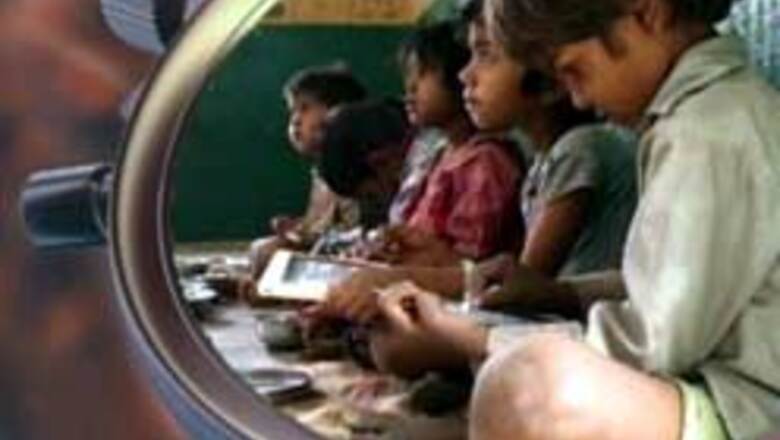
views
Two million children in India die and turn into statistics every year. That's about 6,000 deaths everyday. A CNN-IBN Special Investigation travelled to the rural heartlands of UP to document deaths and cases of malnutrition for a special edition of 30 Minutes. Here’s the first installment from UP’s Varanasi and Lalitpur districts.
Jaharunnissah lost her only son to hunger about two months ago. Four-year-old Khusbuddin was emaciated and weighed a mere 6.5 kg at the time of his death.
”Woh kuposhan ka shikar tha usko main doodh dava poora nahin kar paati thi paise ke kaaran is vajay se uski maut ho gayi. (I could not fend for his food and medicine. He died of malnutrition),” she says.
Abandoned by her husband, Jaharunnissah is trying to piece her life together. But at the end of one day of toil embroidering sarees, she is paid a meager Rs 10 or Rs 15.
“Aaj agar mere bachhe ka ilaaj ho jaata to mera bachha bach jaata is baat ka mujhe dard rehta hain ki paise na hone ke kaaran aaj maine apne bachhe ko kho diya. (I wish I hadn’t lost my son. The pain of losing a child because of lack of money to feed him is unbearable),” says an inconsolable Jaharunnissah.
A few kilometers away, in another village near Varanasi, six-year-old Shamim is also battling malnutrition. Unlike other kids his age, he is neither playful nor talkative. A severe deficiency of proteins and calories has given him a bloated belly and reduced his immunity.
Says his mother, Zohra, “Isko TB aur gurde mein kharabi hai. haath per fool jata hai, saas phul jata hai (He is suffering from TB and has kidney trouble too. His limbs swell up and he faces breathing difficulty).
Nearly 60 per cent children in Lalitpur district of Uttar Pradesh are malnourished. In the last 9 months, in Talbahat block alone, 183 cases were reported, out of which 116 were categorized as “severe”.
Local doctors say the biggest challenge is convincing parents that their children are undernourished.
“Pata hi nai hai unko. Yahan aake unko samjhaya jata hai ki bachcha bahut hi zyada weak hai. apko yahan treatment dene ki zaroorat hai. admit kijiye, bahut convince karke unhen yahan admit karna padta hai (They don’t even realise there’s something wrong. We have to tell them their child is weak and needs treatment. It takes a lot of convincing for them to realise this),”says nutrition counsellor, Community Health Centre, Shilpi Sahariya.
Very often, there are no medical facilities. Primary health centres in many places are understaffed and almost non-functional.
Says Dr Sanjeev Kumar of Primary Health Centre (Hingora), “PHC mein rehne ke liye doctors ko staff milna chahiye, ward boy hona chahiye, sweeper hona chahiye, nurses honi chahiye kuch bhi nahin hain. final toh patient ko hi face karna hoga (We need doctors, sweepers, nurses and ward boys to run a PHC. There’s nothing here. Ultimately the patient has to suffer.)”
Abject poverty, lack of basic health care facilities and poor health of rural women are all killing India's underpriviledged, malnourished children. The country has consistently has let down children like Shamim and today malnutrition rates in India are even worse than Sub Saharan Africa.
Watch the half-hour special - Small, Hungry & Dying - Saturday 9:30 pm & Sunday at 5:30 pm on CNN-IBN)
















Comments
0 comment